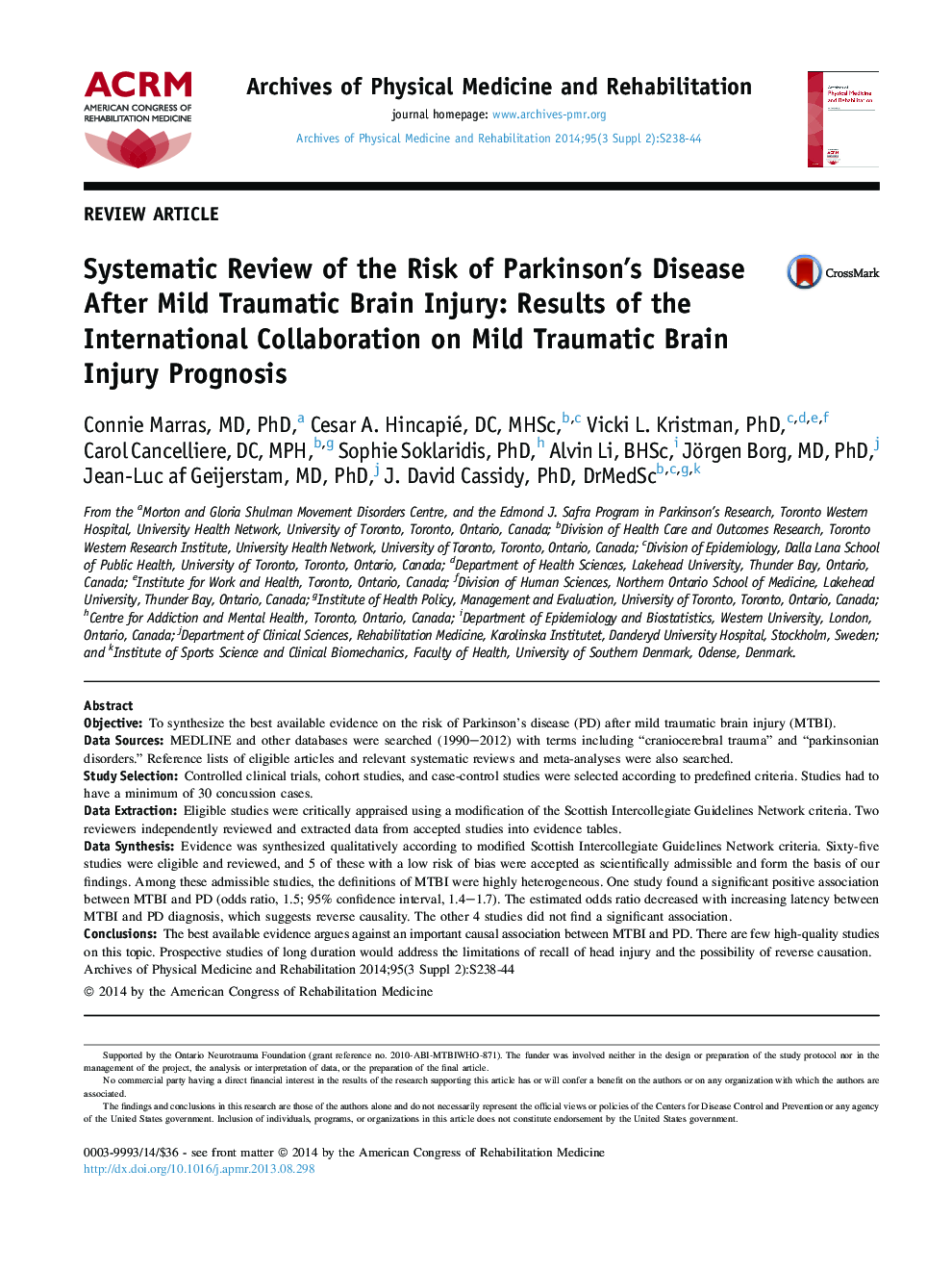| Article ID | Journal | Published Year | Pages | File Type |
|---|---|---|---|---|
| 3448406 | Archives of Physical Medicine and Rehabilitation | 2014 | 7 Pages |
ObjectiveTo synthesize the best available evidence on the risk of Parkinson's disease (PD) after mild traumatic brain injury (MTBI).Data SourcesMEDLINE and other databases were searched (1990–2012) with terms including “craniocerebral trauma” and “parkinsonian disorders.” Reference lists of eligible articles and relevant systematic reviews and meta-analyses were also searched.Study SelectionControlled clinical trials, cohort studies, and case-control studies were selected according to predefined criteria. Studies had to have a minimum of 30 concussion cases.Data ExtractionEligible studies were critically appraised using a modification of the Scottish Intercollegiate Guidelines Network criteria. Two reviewers independently reviewed and extracted data from accepted studies into evidence tables.Data SynthesisEvidence was synthesized qualitatively according to modified Scottish Intercollegiate Guidelines Network criteria. Sixty-five studies were eligible and reviewed, and 5 of these with a low risk of bias were accepted as scientifically admissible and form the basis of our findings. Among these admissible studies, the definitions of MTBI were highly heterogeneous. One study found a significant positive association between MTBI and PD (odds ratio, 1.5; 95% confidence interval, 1.4–1.7). The estimated odds ratio decreased with increasing latency between MTBI and PD diagnosis, which suggests reverse causality. The other 4 studies did not find a significant association.ConclusionsThe best available evidence argues against an important causal association between MTBI and PD. There are few high-quality studies on this topic. Prospective studies of long duration would address the limitations of recall of head injury and the possibility of reverse causation.
